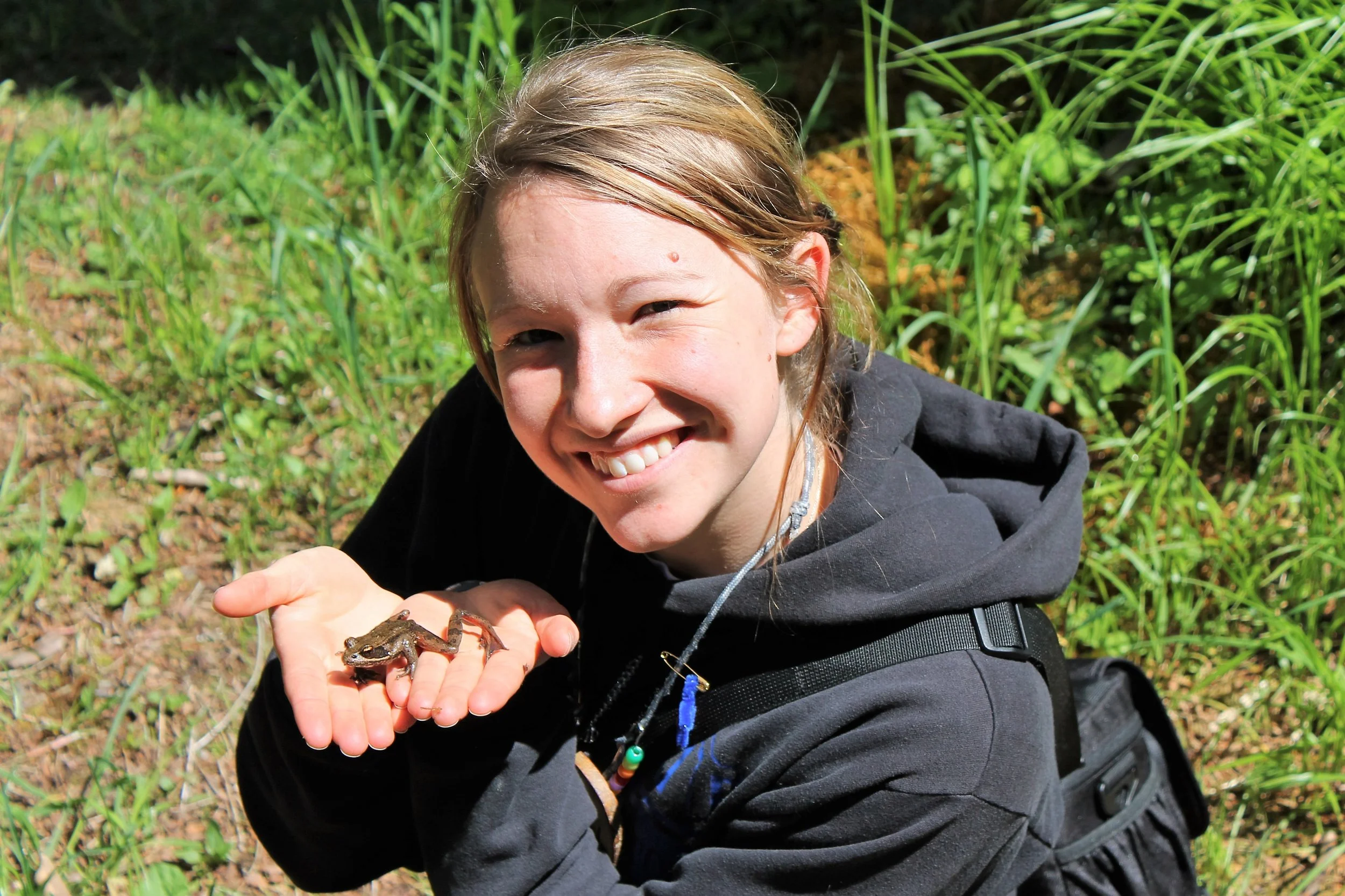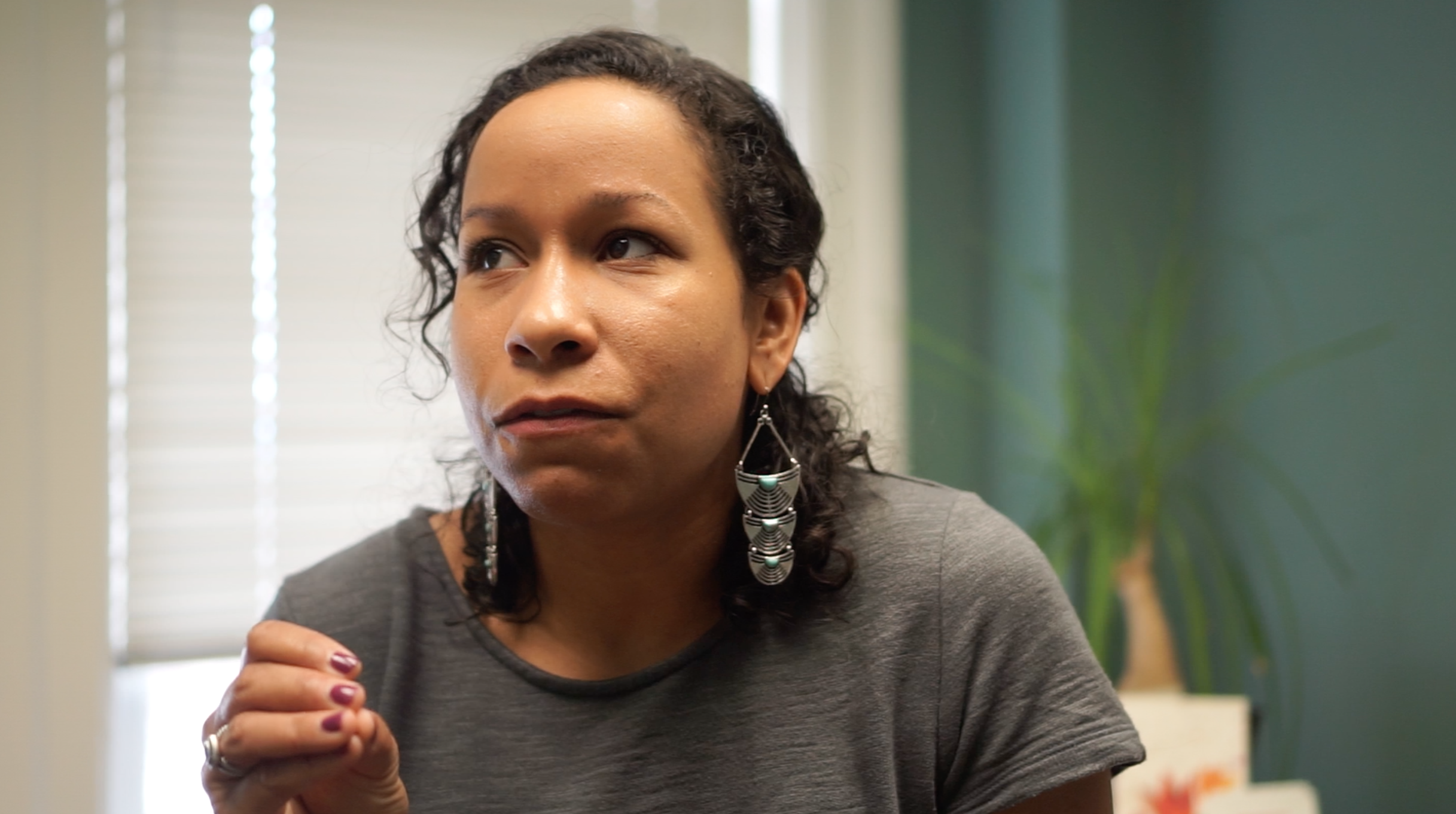Olivia "Paw" Evans

“At Outdoor School I worked with kids with mental or physical disabilities and I was challenged to change how I think. Because of my work at camp and interactions with the students, I can now better see who a student is. Although part of who they are may be their disability, it’s not the first and last thing I notice. Outdoor School taught me to see the strengths they have rather than focusing on where they need help.”
When you agree to go to Outdoor School you’re agreeing to much more than a week of “camp.” Outdoor School is a catalyst, something to add to the mixture that is you; it accelerates a change in you both socially and emotionally. A single six-day commitment can push you so far, until your eyes sting and your feet ache. But on the final day, when you’re watching the buses leave, feeling your throat hurt, and maybe you’re crying, you can think back to your week and still be filled with wonder.
When I think of Outdoor School I think of the times the kindness, the intelligence and the pure sass of the students showed even during the most stressful situations. I think of how their departing tears were, in a way, an achievement, that symbolized how much they loved their week at Outdoor School and didn’t want to leave. I think of making some of the best friends I’ve ever known, and knowing that rather than bonding through years of knowing one another, we became friends in just one week from pushing each other to exhaustion and then offering or accepting a hand. I think of the excitement I felt as I discovered something new to teach, or even better, when a student taught me something new or pointed out a hidden connection I had never realized. I think of how sometimes I couldn’t wait to get home and shower, but how I also never wanted to leave. By the end of the week even though I’ve usually already lost my voice, I think of how much better I feel compared to when I arrived.
The skills I’ve developed and the experiences I’ve had at Outdoor School are firmly incorporated into my personhood. I remember more about my week at Howard four months ago than I do about last week. Although it’s impossible for me to list every skill I gained at Outdoor School, a few stand out. Confidence, initiation, empathy, independence, as well as teamwork and improved communication skills are just a few qualities that both developed in myself and blossomed in others at Outdoor School.
Feeling confident not just in myself, but also in others was especially imperative at Outdoor School. To work well with others, in any environment, it is necessary to trust, rely on and comfortably integrate the ideas of others. This has always been a challenge for me. To ensure a project was successful, I felt I had to be the one completing most of the work. At Outdoor School, since we are always working with new people in new circumstances, I had to adapt. I have learned to feel more comfortable encouraging the values and contributions of all team members, and enjoying the richness of the end result this process yields.
These skills don’t just stay at Outdoor School. My new-found confidence helps me succeed in other groups and environments. This confidence has freed me to develop a love of travel and a desire to explore. Teamwork and independence are both essential on my crew rowing team and my other volunteer activities. Self-initiation has started to become increasingly more important as my schooling and activities become less structured and monitored. These are life skills that I’m positive I’ll use at college and beyond.
After college, I want to go into either teaching or youth mental health rehabilitation. Both of these are passions of mine, which Outdoor School has helped to foster. In middle school and through my volunteer activities I’ve come into contact with youth with mental and/or physical disabilities. I initially saw peers with disabilities as defined by those challenges rather than as an individual who also had a unique challenge. At Outdoor School I worked with kids with mental or physical disabilities and I was challenged to change how I think. Because of my work at camp and interactions with the students, I can now better see who a student is. Although part of who they are may be their disability, it’s not the first and last thing I notice. Outdoor School taught me to see the strengths they have rather than focusing on where they need help.
As for teaching, I’ve loved it since middle school and Outdoor School has shown me a way to love it even more: by leaving the classroom. Watching students pawing through deer ferns in search of the single frond with spores, or showing them how plants can purposefully move, and seeing their excitement outshine pouring rain or freezing temperatures has taught me that teaching should not be limited to the four walls of a predictable classroom.
It was this same train of thought — not limiting myself to a classroom — that led me to my internship with Friends of Outdoor School and my other extracurricular activities such as independent studies and studies abroad. I love to learn and discover new things but at a school as small as my own, there were not a lot of options for classes. With the confidence and self-initiation that was nurtured at Outdoor School, I challenged myself to leave the classroom and explore. I’ve gone on two short study-abroad programs; first to Mexico (three weeks with a small group) and then a month-long solo trip to Nicaragua, both of which were study and volunteer programs, I fell in love with traveling and plan to study abroad for much longer once I reach college.
I was also encouraged to find education elsewhere as I earned all of my high school credits by the end of junior year and the only available classes for senior year were electives. Since this opened up my high school schedule my senior year, I wanted to spend this time doing something I was passionate about. I reached out to Friends of Outdoor School and asked if they had room for an intern. What I expected to be a couple months of work turned into an amazing experience that has continued well beyond the expected duration and depth. I was able to meet long-term donors and share my experience of Outdoor School with people who had never heard of it, all while growing and learning myself.
The most beneficial aspect of my internship for me was the “professional” it created in myself. All of my prior experiences with volunteering have been much less formal; such as volunteering at an elementary school or the Portland Children’s museum. But with this internship I was expected to interact with professionals and to speak in public settings. This real-world job experience was unlike anything I expected to get as a high school student, and the skills I’ve learned — professionalism, computer skills, time management among others — will stay with me just like the skills I developed during my weeks of Outdoor School.
Next year I will attend Humboldt State University in Northern California. I fell in love with the school and the huge Redwoods on campus; not to mention their nationally-known science programs. Outdoor School has been a constant thing to look forward to, helping me to stay on track and pushing me to do my best in any situation. I know that this won’t be the end of volunteering at Outdoor School for me, and I honestly can’t wait to return.





